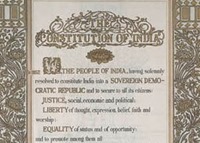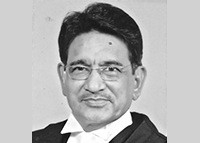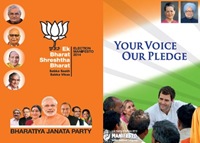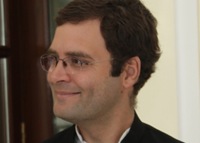pendency
The PTI reported the law ministry releasing data that:
according to the latest data compiled by the Law Ministry, as on [1 August], the high courts were facing a shortage of 384 judges as against the approved strength of 1017. Thus, the 24 high courts are functioning with a working strength of 633 judges.
As on [1 May], there was a shortage of 366 judges in the high courts.
The Supreme Court is currently deliberating whether the National Judicial Appointments Commission (NJAC) is constitutional. In the meantime, new appointments to high courts have effectively been stalled.
The Hindu reported that the Rule of Law Index 2015 by the US-based World Justice Project has placed India 59th out of 102 countries globally for its rule of law performance on a number of metrics.
On criminal justice India ranked 44th, while for civil justice it ranked 88th globally, third in South Asia and 19th among “lower middle income countries”.
India’s ratings are dogged most by “perceptions of corruption, of the effectiveness of the civil justice system, the regulatory enforcement environment and the criminal justice system, all of which reflect that less than half of the respondents showed faith in these systems’ ability to deliver justice”, according to The Hindu, which has prepared a detailed infographic of the findings.
Hot on the heels of the government getting ready to create special fast-track commercial divisions of all high courts, Delhi high court chief justice G Rohini has decided to redesignate four benches of the Delhi high court to exclusively handle commercial disputes, of which around 20,000 are currently pending.
“According to information released by the office of the Registrar General, Delhi high court, two benches hearing matters of Original jurisdiction, and two division benches, as Commercial Appellate courts, will start functioning from Thursday,” reported the Indian Express.
“Two of these will be e-courts and will function as paperless courts. Sitting judges with the appropriate experience and expertise have already been appointed,” reported The Hindu].
According to the Express, DHCBA secretary Abhijat said it was “alarming that the decision was taken without consulting the Bar” and said that it was a “prima facie meaningless order” since the issue of jurisdiction was to be finalised by the Parliament. “The decision is at best an administrative order which can’t override or supplant a bill which is still being drafted,” he said.
 Legal scholar Nick Robinson explores how (and if) the proposed new commercial fast-track courts might work.
Legal scholar Nick Robinson explores how (and if) the proposed new commercial fast-track courts might work.
 A group of lawyers analysed 884 judgments handed down by the Supreme Court in the 2014 calendar year and found that only 64, or 7 per cent, involved any substantive constitutional issues.
A group of lawyers analysed 884 judgments handed down by the Supreme Court in the 2014 calendar year and found that only 64, or 7 per cent, involved any substantive constitutional issues.
A total of 62,641 cases were disposed of and settlement amount of Rs 65 crore awarded by various Delhi courts on the Second National Lok Adalat Saturday.
“As many as 201 benches took up all kind of cases i.e. civil cases, criminal compoundable cases, Negotiable Instrument Act cases, electricity cases, motor accident claims, bank loan cases, labour cases, arbitration cases, matrimonial cases and traffic challans apart from pre-litigative matters and plea bargaining Cases in which 61,951 cases were disposed of and the settlement amount was Rs. 26.53 crore,” the Delhi State Legal Services Authority (DLSA) said in a statement.
It added that pendency of cases in district courts was reduced by 5.19 percent in a single day.
“Other than judicial courts, the National Lok Adalat sittings were held in tribunals and commissions including the revenue department, Consumer Commission etc. 31 benches were constituted wherein 690 matters were disposed and settlement amount was Rs.38.44 crore,” a DLSA official said.
As such in the state of Delhi, in all 232 benches disposed of 62,641 cases and the settlement amount was Rs.64.97 crores, he said, adding there would be no further revisions or appeals in these cases.
The Second National Lok Adalat was organised by DLSA in the Delhi high court and all the district court complexes - Tis Hazari, Karkardooma, Patiala House, Saket, Rohini and Dwark --under the supervision of Delhi Chief Justice G Rohini.
Lok Adalats were also held in the State Consumer Dispute Redressal Commission (SCDRC), Debt Recovery Tribunal (DRT), Central Administrative Tribunal (CAT), Revenue Department Courts i.e. SDM cCourts apart from Permanent Lok Adalats and District Consumer Disputes Redressal Forums.
"The judges are serious about rendering speedy justice to litigants. In most cases, the law has already been succinctly laid down and does not require further arguments to delay a verdict. Those cases need to be decided fast with crisp judgments focusing only on facts in the backdrop of the already laid down law,” a Supreme Court source told the Times of India.
The paper reported that SC judges have been “informally circulating” the message to keep judgments short and sweet under the new Chief Justice of India (CJI) HL Dattu, who is also (as pretty much every other CJI before him) trying to find ways of tackling the pendency problem.
Madras high court chief justice Sanjay Kishan Kaul has ordered that every judgment must mention on its first page, the dates on which it was reserved and pronounced, in a bid to increase transparency of and reduce the delay in pronouncing judgments, reported The Hindu.
Kaul relied on the 13-year-old Supreme Court order in Anil Rai vs State of Bihar, in which justices KT Thomas and RP Sethi said that “if the judgment, for any reason, is not pronounced within six months, any of the parties shall be entitled to moving an application before the Chief Justice with a prayer to withdraw the case and make it over to any other Bench for fresh arguments. It is open to the Chief Justice to grant the prayer or pass any other order as he deems fit”.
Kaul has directed the the high court’s registry to create a new column in judgment templates to contain those dates, and to send him a list of all judgments reserved but not pronounced.
Chief Justice of India (CJI) RM Lodha has notified the Supreme Court Rules, 2013 that have received the president’s assent and will reduce the maximum time of the apex court’s summer vacations from 10 to 7 weeks, reported the Indian Express, though the total annual holidays will remain capped at 103 days [Download rules here].
The court took 49 days (7 weeks) of summer vacations this year, against an average of 45 days for the past few years. However, the move is seen as symbolic of Lodha’s desire to reduce pendency in the courts by increasing the number of working days, which has seen heavy resistance from bar councils and associations.
 The SC has said that from 8 July, two benches would only hear miscellaneous matters in service matters, cheque bounce appeals and labour matters.
The SC has said that from 8 July, two benches would only hear miscellaneous matters in service matters, cheque bounce appeals and labour matters.
 Delhi lawyer Prashant Reddy argues that many of the plans for reforming the Indian courts fail to see the most fundamental problem - a lack of transparency – and proposes several ideas to fixing it.
Delhi lawyer Prashant Reddy argues that many of the plans for reforming the Indian courts fail to see the most fundamental problem - a lack of transparency – and proposes several ideas to fixing it.
 Despite the BCI chairman’s recent ringing personal but apparently representative endorsement of Narendra Modi, lawyers will have to make their own choice this election. LI tries to help.
Despite the BCI chairman’s recent ringing personal but apparently representative endorsement of Narendra Modi, lawyers will have to make their own choice this election. LI tries to help.
Law minister Kapil Sibal has written to all chief justices to get recommended names on how to increase each HC's bench strength by 25%, taking the total size of India's higher judiciary to 1,112 from 906. Nevertheless, there are already 250 vacancies, even without the new plan [The Hindu]
 With Lok Sabha elections now scheduled to start on 7 April it is fair to ask: what has the current government done for India's legal profession? And can any of the others do better?
With Lok Sabha elections now scheduled to start on 7 April it is fair to ask: what has the current government done for India's legal profession? And can any of the others do better?